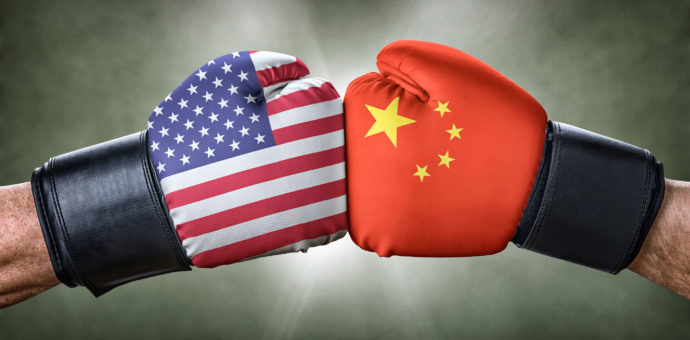The Libra is serving as inspiration for the creation of a new cryptocurrency in China. The Central Bank of the country, known as the People’s Bank of China (PBoC), recently announced that it intends to launch a stablecoin similar to that of Facebook.
The newness may have influences in the trade war between the United States and China for the global monetary supremacy. David Marcus, Head of the cryptocurrency wallet Calibra on Facebook and known as the co-creator of the company’s enterprise in cryptocurrencies, commented on the subject on Twitter. “As I´d said: if we don’t lead the prcocess (and by ‘we’ I mean the free world, *not the FB*), others will do it. It was not a figure of speech, an exaggeration or a distortion of the reality we face. It was the truth”.
Marcus’ tweet alludes to the confrontation between East and West. But it stands out, however, because it is targeting the regulators and the U.S. Congress – notably the Congress’ Financial Services Committee, to defend a contrasting regulatory approach, based on capitalism, freedom and less central regulation.
That way, it wouldn’t be surprising if the PBoC launched its own cryptocurrency despite government bans. It would be consistent with previous technology policies, so that foreign cryptocurrency projects would be suppressed in favor of the next PBoC currency.
It would also be coherent the project to be highly centralized. As it is known, the government of China has a history of benefiting from the power of centralization. However, the country also has a profound understanding of how a revolution is and where it can come from. Thus, China can easily limit the crypto assets through regulation.
While China should be launching a single, centralised and monolithic cryptocurrency and suppress all others, the West is expected to have a multitude of new initiatives in the sector. A series of releases are planned for both retail and remittance payments, such as Facebook’s Libra and Telegram’s TON, but also for companies or B2B, such as the JPM Coin and Signature Bank digital payment platform, called Signet.
In this context of US-China trade war, cryptocurrency developments and regulatory challenges, blockchain payment solutions should stand out. In B2B, banks must lead this process, while in B2C, messengers. The largest in this category is obviously the Facebook Libra project.
Central Bank of China working with eight institutions
PBoC is rumored to be working with eight institutions that will be the first beneficiaries of the new currency – including Alibaba, Tencent, China Construction Bank, China Industrial and Commercial Bank, Bank of China, Agricultural Bank of China, Union Pay and an eighth not yet known.
With billions of messenger and bank users using blockchain payment solutions, every major organization in the world will have to create an answer to this situation. And competition between nations and ideologies – such as China vs. the West – can accelerate the delivery of solutions that will form the basis for mass adoption of crypto assets.
What will be the next chapters of this monetary war?







